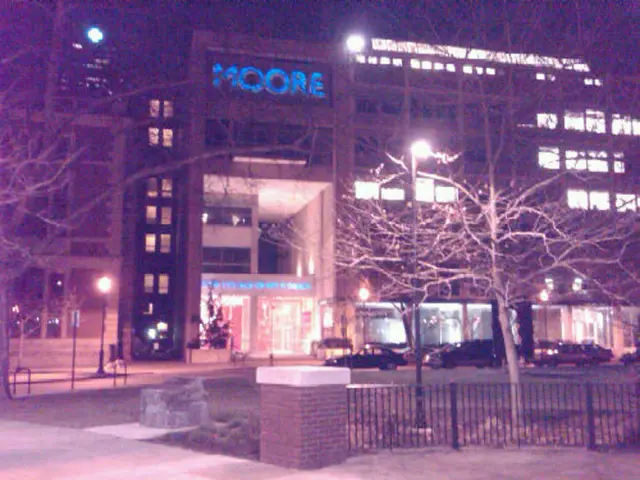Imminent Medicaid reductions could prove catastrophic for Hawaii's healthcare system.
In a time of personal turmoil, Medicaid provided a lifeline for Amy Feeley-Austin and her children in Kona. Twelve years ago, her husband passed away, leaving her and the kids uninsured. The unexpected loss was a devastating blow, and amidst her grief, she scrambled to secure health insurance for her two young ones.
Thanks to Medicaid, she managed to get them covered for standard doctor visits, as well as specialized care her disabled son required. Although she was employed with a social services organization at the time, the cost of employer insurance swallowed three-quarters of her salary. But with Medicaid's help, she survived those tough days, eventually landing a better job with affordable health coverage.
Fast forward to today, Feeley-Austin, now 42, has risen to become the chief operating officer at Kona Community Hospital. She remains deeply grateful to Medicaid for stepping in during a critical time in her life.
But Medicaid's future hangs in the balance. Congress is weighing potential cuts to the program,with Republicans considering slashing up to $880 billion over a decade. According to KFF, a health policy think tank, these cuts could take various forms, such as implementing new work requirements or scaling back federal Medicaid costs.
If implemented, these cuts would leave states scrambling to make up for the losses, potentially affecting millions of lives across the nation. In Hawaii, Medicaid is known as Med-QUEST and covers over 400,000 of its residents—1 in 3 keiki and 1 in 3 births. Furthermore, it covers low-income children and adults, pregnant women, the aged, blind, and disabled population, among others, supplying doctor visits, hospital services, prescription drugs, rehab, and more.
While Hawaii hasn't yet made any changes to Medicaid funding, the state Department of Human Services is keeping a close eye on the situation. The potential impacts are far-reaching: decreased access to essential healthcare services, increased medical debt for residents, and potential strain on rural hospitals.
Medicaid voucher plans, such as AlohaCare, stand to be affected as well. AlohaCare has been providing coverage for QUEST beneficiaries since 1994, making it Hawaii's second-largest Medicaid provider, following HMSA. Claudette Culley-Trotman, the CEO of AlohaCare, stresses the program's importance as a vital safety net for many families who cannot afford private health insurance or have limited access to employer-sponsored benefits. Any cuts would be "devastating" for Hawaii, she stated.
The impact goes beyond Hawaii's hospitals and residents. Without Medicaid's support, the entire ecosystem of healthcare could be disrupted, leading to increased pressure on the emergency room system, which is already strained. AlohaCare is actively collecting stories like Feeley-Austin's to raise awareness of the potential consequences if Medicaid budgets are finalized with cuts.
In the face of uncertainty, organizations such as AlohaCare and others like it continue to fight for the preservation of Medicaid. The proposed cuts would have long-term and costly consequences, affecting not just Hawaii but the entire country. The healthcare community, federal legislators, and advocates for vulnerable populations will be watching closely as decisions are made.
- The lifeline provided by Medicaid during Amy Feeley-Austin's personal crisis allowed her to secure health insurance for her children, ensuring their access to standard doctor visits and specialized care.
- In the realm of general news, politics, and policy-and-legislation, Congress is contemplating potential Medicaid cuts, which could amount to $880 billion over a decade.
- KFF, a health policy think tank, predicts that these cuts could manifest in various forms, such as implementing new work requirements or adjusting federal Medicaid costs.
- If implemented, these cuts could leave states like Hawaii struggling to compensate, potentially affecting hundreds of thousands of residents and millions of lives nationwide.
- In Hawaii, Medicaid, known as Med-QUEST, provides coverage for essential healthcare services to over 400,000 residents, including low-income children, adults, pregnant women, the aged, blind, and disabled population.
- The healthcare ecosystem, including rural hospitals, may experience strain due to potential Medicaid cuts, leading to increased pressure on emergency rooms and decreased access to healthcare services for many.
- Representatives from organizations like AlohaCare, Hawaii's second-largest Medicaid provider, are actively advocating for the preservation of Medicaid, collecting stories like Feeley-Austin's to raise awareness of the consequences of potential cuts.
- The healthcare community, federal legislators, and advocates for vulnerable populations remain vigilant as decisions are made regarding Medicaid budgets and the potential impact on health-and-wellness, science, environment, community, and education.







